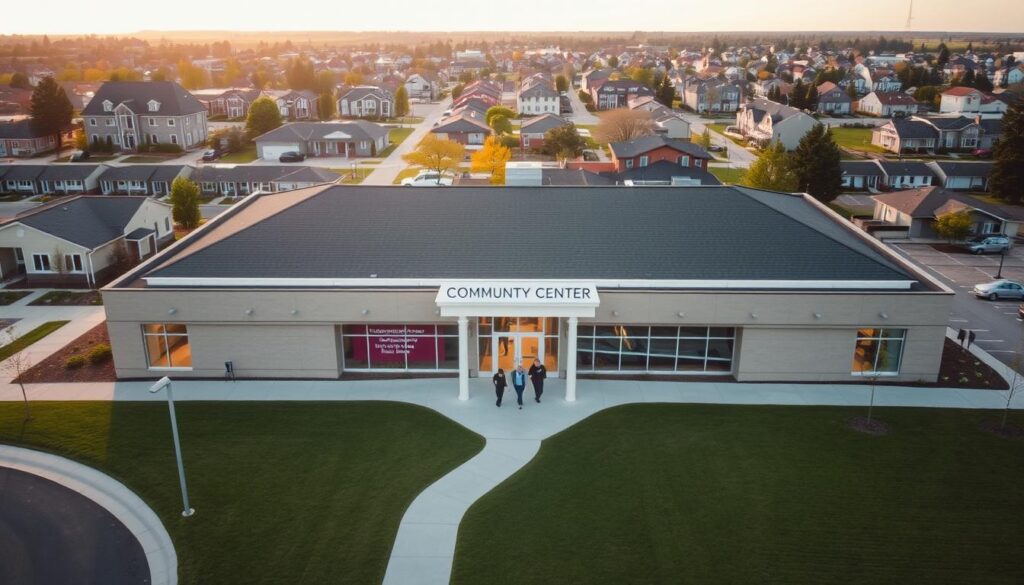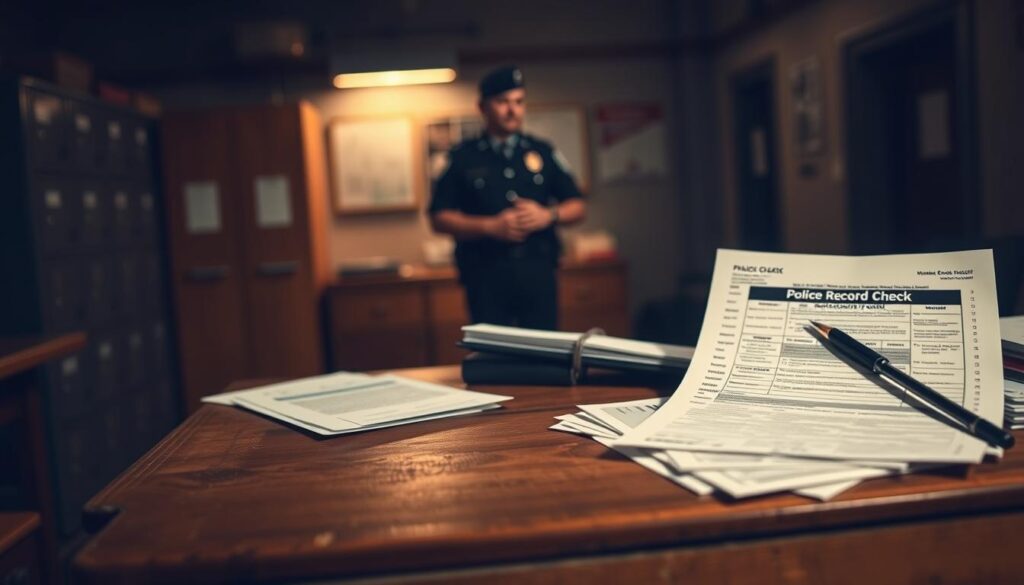Over 1.3 million Canadians undergo specialized background checks annually to work with children or at-risk individuals. These processes form a critical layer of protection under Ontario’s Police Record Checks Reform Act, 2015, which standardizes how authorities handle sensitive information.
When applying for roles involving caregiving or mentorship, you’ll encounter a thorough evaluation that digs deeper than standard criminal history reviews. This includes assessing mental health-related court outcomes and unresolved allegations – details excluded from basic checks.
Canada’s approach to community safety prioritizes prevention through these enhanced verifications. Organizations from schools to senior centers rely on them to confirm staff and volunteers meet strict safety criteria. The system balances privacy rights with public protection, disclosing only relevant details based on position requirements.
In York, multiple civic locations streamline applications while maintaining rigorous standards. You’ll need government-issued ID and position-specific documentation to begin. Processing times vary, but each step reinforces community trust in those serving sensitive populations.
vulnerable sector screening york region: An Overview
Enhanced background assessments serve as a cornerstone in safeguarding at-risk groups across Canadian communities. These specialized reviews go beyond standard criminal history reports to assess suitability for roles requiring trust and responsibility. 
What It Involves
This type of police record verification examines multiple layers of personal history. It includes criminal convictions, unresolved charges, and court orders related to mental health outcomes. Unlike basic checks, it reveals pardoned sexual offenses and findings of non-criminal responsibility.
You might need fingerprint submission if your details match existing pardoned records. This step confirms identity – not guilt – and prevents mistaken identity issues. The process follows strict federal guidelines to balance privacy with public safety needs.
Who Benefits from a Vulnerable Sector Check
These evaluations protect both organizations and those they serve. Positions involving:
- Supervision of minors
- Care for elderly or disabled individuals
- Volunteer roles with community programs
Schools, healthcare agencies, and nonprofit groups rely on these checks when selecting staff. Volunteers gain trust through this verification, showing their commitment to safe service delivery. The system helps create secure environments while maintaining individual rights.
Application Process and Submission Guidelines
Canada’s crime prevention framework requires precise documentation when handling sensitive background checks. Following proper steps ensures your request meets legal standards while protecting community safety.

In-Person Application Tips and ID Requirements
Visit any authorized center with two original government-issued documents. One must show your photo, like a driver’s license or passport. The second could be a health card or birth certificate.
| Location | Address | Operating Days |
|---|---|---|
| Aaniin Community Centre | 5565 14th Ave, Markham | Mon-Fri 9AM-7PM |
| Markham Civic Centre | 101 Town Centre Blvd | Weekdays 8:30AM-4:30PM |
| Varley Art Gallery | 216 Main St, Unionville | Tue-Sun 10AM-5PM |
State clearly that you’re submitting a volunteer-related check when approaching staff. They’ll verify your IDs on-site and return them immediately. Confirm hours online before visiting – some centers close early on weekends.
Online Submission and Processing Times
Some police services let you apply through their secure site. You’ll need a modern browser and scanned copies of your identification. Electronic delivery options may reduce wait times for approved requests.
Standard processing takes 10-14 business days. Complex cases requiring fingerprint matching extend to 8 weeks. Check your email regularly for status updates or additional instructions.
Always verify submission methods with your organization first. Schools and nonprofits often have preferred channels to accelerate approvals.
Police Record Check Considerations for Volunteers in Canada
Canada’s volunteer screening system uses tailored police checks to match roles with community safety needs. Three verification levels exist under Ontario law, each revealing specific details about your background.

Types of Police Record Checks Explained
Choose the right check based on your volunteer work:
| Check Type | Details Included | Cost for Volunteers |
|---|---|---|
| Criminal Record | Convictions & youth records | Free |
| Judicial Matters | Charges, warrants, court orders | Free |
| Comprehensive Check | Mental health findings & non-convictions | Fee applies |
Legal, Privacy and Volunteer-Specific Requirements
Your residency duration determines where to apply. Live here under 6 months? Get checks from your home country. Longer stays require regional police applications.
Privacy laws limit disclosures to relevant information only. Record check units protect your data while sharing necessary details with organizations.
Contacting Local Agencies and Submission Points
Most police services process requests online or in-person within 14 days. Delays occur if fingerprint matching is needed. Track progress through online record systems and receive notifications via email.
Always confirm requirements with your volunteer coordinator first. For specific questions about documentation or processing, contact your local check unit directly.
Conclusion
Completing this specialized background check shows your dedication to community safety. Organizations must follow strict privacy laws – they can’t request your information without consent. Results come directly to you first, letting you verify details before sharing.
Multiple local units process applications efficiently. You’ll need valid ID and position documents. Some offer electronic delivery for faster service. Always double-check your name and address match official records.
Found errors? You can request corrections through the proper agency. This ensures fairness while maintaining safety standards. Your efforts help build trust in roles serving others.
Remember: these processes protect both applicants and communities. They open doors to meaningful work while upholding Canada’s prevention goals. Keep copies of approval letters – many groups accept them for multiple opportunities.

